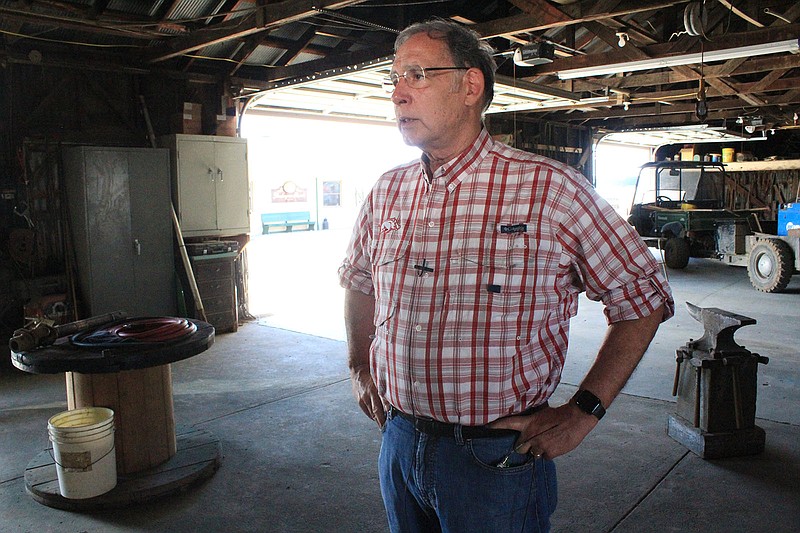WASHINGTON -- As Congress completes its work for the year, legislators are already discussing the next farm bill and possible changes from the current law.
The farm bill allocates funding for federal nutrition programs as well as programs on farming, conservation, agriculture research and rural development. Lawmakers last approved a measure in 2018.
The nonpartisan Congressional Budget Office estimates the next farm bill will have a $648 billion baseline budget over five years and a nearly $1.3 trillion baseline budget over 10 years.
Arkansans will have a noticeable impact on the next farm bill. Sen. John Boozman, R-Ark., will continue serving as the top Republican on the Senate Agriculture, Nutrition and Forestry Committee in the next Congress. The House of Representatives Agriculture Committee -- whose members include Republican Rep. Rick Crawford of Jonesboro -- has spent part of this year reviewing the current law.
Rep. Bruce Westerman, a Republican from Hot Springs, additionally could provide lawmakers with insight. He is preparing to become chairman of the House Natural Resources Committee, which oversees matters involving public lands and national resources.
"Americans have been through a lot since the last time we gathered to write a farm bill," Boozman said during a Nov. 15 Senate Agriculture Committee hearing. "The pandemic, record-high inflation, breakdowns in the supply chain, the war in the Ukraine, floods, droughts, tornadoes, hurricanes, [and] wildfires have tested all of us."
"Rural America was not shielded from any of these challenges," the senator added. "In fact, in many ways, the impact on rural America was greater."
Much of the farm bill involves spending on nutrition assistance programs. The Congressional Budget Office estimates 84% of the next measure's baseline budget is the Supplemental Nutrition Assistance Program and similar programs, as well as reimbursements for states to administer programs. About 239,000 Arkansans are SNAP participants.
House Republicans have proposed removing nutrition programs from the upcoming farm bill, a move that halted work in previous Congresses. In 2013, the House approved splitting nutrition programs and agriculture policies into two measures, but the inability to reach a consensus with the Senate delayed approval of a new law until February 2014.
Crawford opposes removing nutrition from the farm bill, referencing the failed effort.
"We're not going to split up the USDA [Department of Agriculture] and say, 'We're only going to authorize this portion of USDA, but not this portion of the USDA,'" he told the Arkansas Democrat-Gazette.
"We need not only rural America represented at the table, but we also need big metropolitan represented at the table. We need them to understand that the nutrition that they're voting for comes from rural America producers that provide for the entire rest of the country. So, the two are inextricably linked."
Other sections of the bill allocate funds for agriculture research, conservation efforts, drought and disaster assistance, and improving broadband access.
"That's critical," Crawford said of broadband deployment. "We found out how critical it is over the covid years, over the last two or three years."
Jarrod Yates, the Arkansas Farm Bureau's director of public affairs and government relations, said the pandemic changed behaviors across multiple sectors, affecting agriculture supply and distribution. He added the next farm bill must include language improving resource access while maintaining funding.
"One of the biggest things that the farmers would say is [for] the next farm bill is to maintain the current funding at least at a level that we've had in the previous farm bill," he said. "There is more disaster money, for example, that is needed."
Crawford said lawmakers should consider raising reference prices under programs providing coverage for declining revenues. He noted lawmakers last changed price levels in the 2013 farm bill.
"They don't adequately reflect the economic conditions that are out there and have an impact on farmers' cash flow," he said.
The congressman added lawmakers additionally should approve language limiting production costs for farmers. If not, it could mean fewer individual farms, he said.
"We're going to, I think, be looking at another potential round of consolidation where we're going to see some of the smaller farmers go out simply because they can't weather that storm," Crawford said.
The current law will expire in September, although Congress could approve an extension while working on a deal.
"It's been a rough couple of years," Yates said. "For Congress to actually complete and reauthorize the farm bill in a timely manner, I think, is important."




